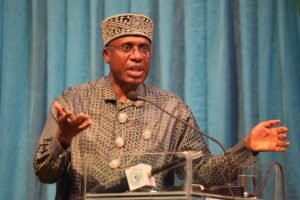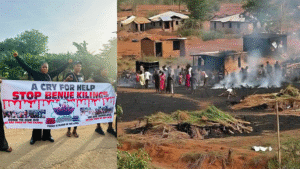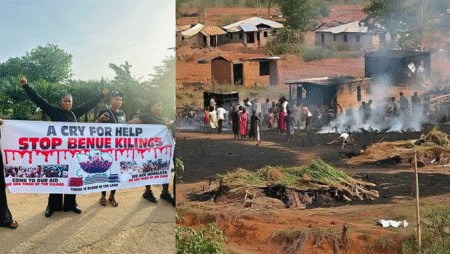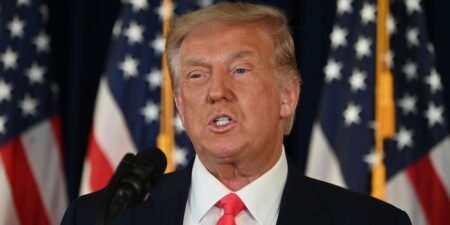Nigerians have told President Bola Tinubu to go harder on terrorists, demanding an intensified onslaught on their enclaves as relations with the United States show signs of thawing.
Information Minister Mohammed Idris confirmed yesterday that diplomatic channels have opened between Abuja and Washington. He said talks are ongoing and that the US is “understanding the situation better”, following a recent military threat from President Donald Trump that provoked alarm here.
Voices on the ground are unequivocal. Dr Obiageli Ezekwesili, senior economic adviser at the Africa Economic Development Policy Initiative, demanded an end to the bloodshed and criticised leaders she said have normalised mass killings. She cited the Chibok abductions of 2014 — alleging that more than 90 per cent of the abducted girls were Christian before some were radicalised — as a case study in how delay and debate allowed a crisis to escalate.
Former governor and Senator Orji Uzor Kalu echoed the severity of the situation, backing Mr Trump’s comments as “nothing but the truth”. Speaking at the National Assembly, Kalu warned that extremist groups are intent on destroying the country and argued that recent intensification of Nigerian Air Force operations may have been supported by US intelligence.
Not everyone shares the same view of blame. Intersociety, a civil liberties group, rejected claims that South-East violence is intra-Christian, insisting instead that jihadist Fulani militants have occupied hundreds of forest enclaves across Igbo lands. The group said the militants now control roughly 950 forest locations across some 800 communities and blamed them for attacks on churches and mass killings, citing incidents such as the 2022 Eha-Amufu ambush.
Across the Atlantic, US Congressman Bill Huizenga criticised the Nigerian government’s handling of attacks on Christians and urged Washington to consider targeted economic sanctions rather than military intervention. Speaking from Washington, D.C., Huizenga warned Nigeria could repeat tragedies seen in Rwanda and South Sudan if decisive steps are not taken. He argued sanctions — not a surprise strike — would most effectively cut off funding and travel for perpetrators.
Domestically, fierce views persist. Femi Fani-Kayode, a former aviation minister, warned against any cosy diplomatic meeting with Mr Trump, claiming the US leader might verbally humiliate Nigeria and alleging ulterior motives tied to resource exploitation. Fani-Kayode nonetheless called for the “total annihilation” of terrorist groups, urging the government and armed forces to adopt ruthless methods.
At the same time, former SDP candidate Adewole Adebayo challenged Mr Tinubu to use the “bullets or the pen” — either decisively crush the insecurity with force or resign. He accused some in government of exploiting insecurity to siphon public funds and insisted the armed forces are capable if properly empowered.
The Chief of Army Staff, Lieutenant-General Waidi Shaibu, offered some reassurance after a State House briefing, promising “improved security across the country” and pointing to renewed momentum from frontline operations, particularly in the North-East.
Meanwhile, a policy statement from the Independent Media and Policy Initiative (IMPI) revealed that Mr Tinubu’s administration acquired some $801 million worth of US military assets over the past 18 months — including AH-1Z Viper attack helicopters and precision munitions — signalling an ongoing drive to modernise Nigeria’s strike capacity against Boko Haram, ISWAP and bandit networks.
As diplomatic talks continue with the US, the public debate has shifted from whether the violence exists to how ruthlessly it should be tackled — and whether the Tinubu administration will deliver the decisive action many now demand.










